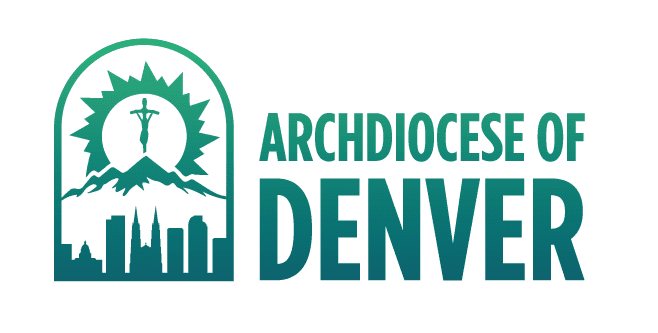February 19, 2019
Archbishop Samuel J. Aquila and the bishops of the three Colorado dioceses have announced a joint voluntary agreement with the Colorado Attorney General for two initiatives to address the history of sexual abuse of minors within the Church. This includes an independent
– FREQUENTLY ASKED QUESTIONS –
Independent Review
- What is the independent review?
The Attorney General, the Colorado Dioceses and Robert Troyer have entered into an agreement giving Mr. Troyer full access to all the Dioceses’ files concerning the sexual abuse of minors by Diocesan priests. Where he has questions, Mr. Troyer will have the opportunity to conduct interviews, in appropriate circumstances, to determine if abuse has occurred. After his review and interviews are completed, Mr. Troyer will write a report, which will be public.
- What is the goal of the independent review?
There are three goals. First, we want to be sure that there are no known or suspected abusers in active ministry. This independent review will give us that assurance. If Mr. Troyer finds that there are abusers in ministry, then that will be reported to the appropriate law enforcement officials immediately.
The second goal is transparency with regard to abuse in the Church and the Church’s historic and current response to reports of abuse. Mr. Troyer will have access to all the Dioceses’ files and will detail his findings. Other dioceses around the country have published lists of abusers and related information voluntarily. This review will be done by an independent third party, so the public can rest assured that nothing will be shaded or concealed.
Third, Mr. Troyer will perform an analysis of the Dioceses’ current policies and procedures for preventing abuse and responding to allegations of abuse. Mr. Troyer’s review will include these policies.
- What will be included in Mr. Troyer’s report?
The report will identify individuals against whom substantiated allegations of abuse have been made by name. It will include details of the abuse, including the assignment of the abuser, and the times during which abuse occurred. It will also detail any reports of abuse to the Church, when the Church received the reports, and what action the Church took in response. The report will provide similar information on misconduct with minors—inappropriate but not illegal behavior—but the names of those who engaged in misconduct will not be included. Finally, the report will include an analysis of the Church’s current policies and procedures for the prevention of and response to allegations of abuse. The report will not include the names of any victims.
- Who is Robert Troyer?
Mr. Troyer is a highly respected Colorado attorney. His experience includes criminal and civil practice. He has worked in private practice and in public positions. Most recently, he served as the U.S. Attorney for Colorado. Throughout his career he has conducted and managed many civil and criminal investigations, which included substantial document review.
- How is the independent review being financed?
The Dioceses are paying half of it. The other half will come from private donors identified by former Attorney General Cynthia Coffman. Those donors have asked to remain anonymous, and we will respect their wishes. No state funds will be used for this project.
- Is the agreement among the Attorney General, the Dioceses and Mr. Troyer public?
Yes. The agreement will be posted on the Colorado Attorney General’s website shortly.
- Why isn’t the Attorney General’s office doing the review?
Using an independent third party allows the review to be done without using State funds.
- What is the standard for determining if the allegation of abuse will be included in the report?
Mr. Troyer will include allegations of abuse where the evidence is sufficient for him to believe it is more likely than not that the abuse occurred.
- How far back will the review go?
From 1950 forward.
- When will Mr. Troyer’s report be completed?
The goal is to complete the work by fall of 2019.
- Is there any reason to believe the Church in Colorado has a current sexual abuse crisis or that there is current criminal activity that requires prosecution?
No. This is not a criminal investigation; it is a review focused on transparency about past incidents of sexual abuse of minors by Catholic priests, and, most of all, that appropriate care be offered to victims of sexual abuse.
To be clear, if the review of records uncovers any criminal issues, or the private program results in previously unreported claims of sexual abuse, those will be referred to the appropriate local law enforcement office and the Attorney General’s office will provide appropriate support to local law enforcement.
Independent Voluntary Reparations Program
- What is the independent voluntary reparations program?
The independent voluntary reparations program is a means for victims of abuse as a minor to receive compensation from an independent expert claims administrator. No matter how long ago the abuse occurred and even if the victim’s claim would be barred by Colorado law, any victim can participate and receive compensation. Key components of the program are:
- The program is entirely independent from, and free from the influence of, the Colorado Dioceses.
- It will be overseen by an independent board, chaired by former U.S. Senator Hank Brown.
- It is entirely voluntary. Victims choose whether or not to participate and do not need to make that decision until they know how much compensation they would receive under the program.
- Compensation is determined solely by the independent claims administrators. There is no appeal to the Colorado Dioceses. Victims are free to accept or reject the award made by the administrator. The Dioceses, however, are required to accept and pay the administrator’s award for any victim that chooses to participate.
- There is no restriction on a victim’s ability to speak publicly about the abuse, this program, or the award that is made. To protect the privacy of victims, however, the program and the Colorado Dioceses agree to keep the victim’s information strictly confidential, except to fulfill their legal obligation to report abuse to local law enforcement, to the Attorney General, and the Special Master.
- All victims who come forward into the program will be treated with dignity and respect.
- How will the amount of compensation a victim will receive be determined?
The independent administrators alone determine the amount of compensation a victim will receive. The administrators’ award is not subject to appeal to anyone, including the oversight committee or the Colorado Dioceses. The award is binding on the Colorado Dioceses, but a victim is free to accept or reject the award.
- Why was this program created?
This new program is another step in the ongoing work of the Church to take care of this historic problem. It is part of a conscientious effort by the Church to facilitate healing through a voluntary program. The program is created out of a deep respect and compassion for the pain that victims and their families have endured and a sense of responsibility to do more to assist them.
- Why now? Was there an event or an occurrence that sparked the creation of this program?
Historically, the Colorado Dioceses have taken action to address misconduct and to offer continuing outreach to victims. The events of the last year, including the Grand Jury report released in Pennsylvania, raise serious questions that some victims of sexual abuse have not received outreach for historic incidents of abuse.
With the developments around the country, including various Attorneys General studying historic abuse, the Colorado Dioceses proactively met with the Colorado Attorney General. The Attorney General and the Church agreed that it is important to understand the historic abuse issues in this State and most importantly to take care of victims of this historic abuse.
- How is the Program independent from the Church?
The Church has no decision-making authority in this Program. The independent claims administrators have the sole and final authority to determine each claim and award reparations. The Oversight Committee, which is independent from the Church, will monitor the program in the manner in which it deems appropriate.
All claims received will be reported to Special Master Troyer for his consideration as well. As a result, the overall process provides complete transparency.
- Can a victim receive reparations if the abuse was at the hand of a high-ranking church official, such as a Bishop or Archbishop?
Yes.
- When will victims be able to file claims?
Special Master Troyer’s work begins immediately, and will conclude with the issuance of a public report. It is important that the claims program be open after the public report is released. We expect the claims program to begin its work in late summer.
- What is the monetary figure for the fund? Is there a cap to the amount?
This is not a “fund” where a pool of money is set aside in advance to satisfy all claims. It’s a claims-made reparations program. The Colorado Dioceses are required to pay all amounts awarded as determined by the independent claims administrators. There is no aggregate cap, nor a per-victim cap.
The total amount the Colorado Dioceses are required to pay cannot be determined until all claims are received, determined, accepted by the victim, and then paid. The Colorado Dioceses are required to pay all amounts awarded to victims. The Colorado Dioceses have committed to providing sufficient funds to ensure all claims that are approved by the independent claims administrators are paid, whatever amount that may be.
- Can you provide information about the timing of payments? How long will it take to administer the claims?
The goal is to get assistance to the victim as soon as possible. In other Dioceses, it has taken roughly 90 days from a claim form being filed to payment being made.
- Does the program require victims to waive their right to sue?
Victims have the right to accept or reject the award made by the independent claims administrators. If the victim chooses to accept the award, he or she must sign a release. If the victim elects not to accept the award, no release is required. Because the decision whether or not to accept an award is up to the victim, the requirement that the victim must sign a release once an award is accepted will not deter victims from participating. When compared to the process of a lawsuit, voluntary programs such as this provide victims with an opportunity to address their claims in a timelier manner and with added certainty.
- Will the releases preclude victims from reporting to law enforcement?
No. No aspect of this program or the release will limit or stop a victim from reporting and further discussing their claim with law enforcement.
- What are the other options victims have if they don’t pursue this program?
All victims are encouraged to report their claims to law enforcement. In addition, each Colorado Diocese has a victim assistance program and remains available as an alternative way to seek support and assistance. The Victim Assistance Program pays for licensed therapy expenses and costs related to psychiatric services and psychotropic medications. The victim assistance programs also offer assistance eliminating barriers to treatment, such as transportation and childcare, and provide help to families seeking spiritual guidance or a meeting with the Archbishop or Bishop of each Diocese.

